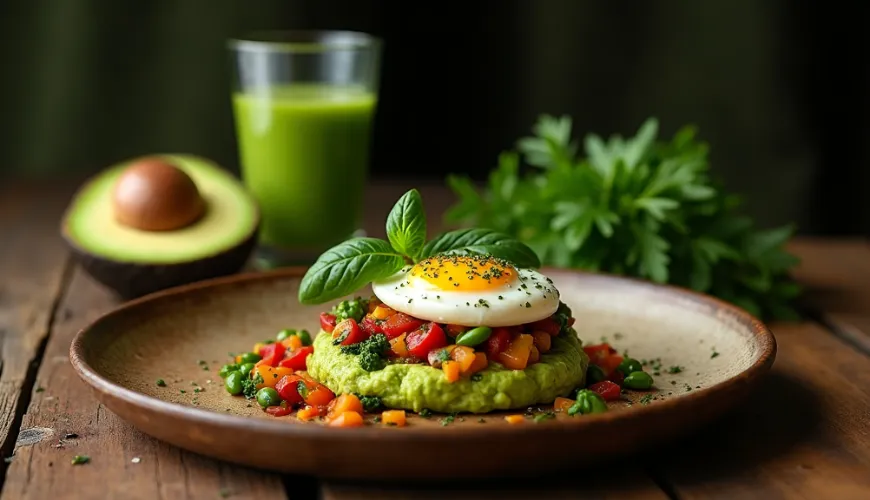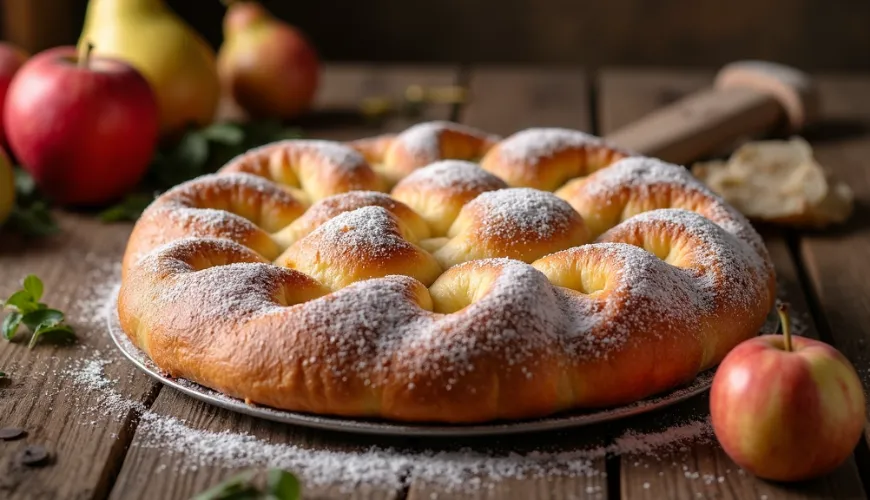
Healthy Breakfast Ideas Without Bread That Will Excite You

Why Start the Day with a Bread-Free Breakfast and How to Do It Deliciously and Healthily
In Czech culture, bread is deeply ingrained—rolls with butter, bread with ham, or a marmalade toast are synonymous with a classic breakfast for many people. However, in recent years, more and more people are turning to alternatives that do not contain gluten, yeast, or refined carbohydrates. The reasons vary—from health restrictions, efforts for better digestion, to an interest in a healthier lifestyle. This is why bread-free breakfasts are becoming a common part of many people's morning routines.
But what does this actually mean? What does a savory breakfast without bread look like when bread or rolls aren't on the plate? And can such a meal even be filling?
When There's No Bread, Don't Despair
A breakfast without bread certainly doesn't mean you have to start the day hungry or give up tasty and nutritious meals. Quite the opposite. By replacing bread, we expand the range of flavors and nutritional values. Instead of quick carbohydrates, which we burn through in an hour and feel hungry again, healthy alternatives offer longer satiety, stable blood sugar levels, and more fiber, protein, or healthy fats.
A typical example could be avocado puree with a boiled egg and sautéed vegetables. No bread? Yes. Filling? Definitely. Moreover, it's a nutrient-rich meal that the body can truly utilize—not just "quick fuel" that burns out quickly.
Savory Breakfast Without Bread
Many people crave something savory in the morning but can't imagine what such a breakfast might look like without a slice of bread. However, there are surprisingly many options, and they often require less time than we think.
One of the most popular options is eggs cooked in various ways—scrambled, boiled, sunny-side-up, or as an omelet. Add to them fresh or sautéed vegetables, a few spoons of fermented vegetables like kimchi or sauerkraut, and you have a breakfast full of life. Fermented foods also support gut microbiota health, which affects not only digestion but also the immune system and mood.
Another favorite inspiration might be tofu scramble. Grated or crumbled tofu on a pan with turmeric, onions, bell peppers, and spinach creates a wonderful vegan alternative to scrambled eggs. If you're looking for something "spoonable," you can prepare a savory porridge base from buckwheat, quinoa, or red lentils, topped with fresh herbs and a dash of quality olive oil.
Bread-Free Breakfasts - Recipes to Delight You
You might be thinking: "Okay, but where do I get ideas if I don't want to end up with a slice of bread every morning?" You don't have to come up with gourmet creations or hunt for exotic ingredients—many tasty and simple breakfasts can be prepared without bread, using what you likely already have in the fridge. To make your morning decisions a bit easier, here are a few favorite tips that might even appeal to you more than the classic roll with butter.
Try, for example, egg salad with avocado—just a few hard-boiled eggs, add diced ripe avocado, season with a teaspoon of mustard, a few drops of lemon juice, a pinch of salt, and pepper, and you're done. By the way, it tastes great with arugula or cherry tomatoes. Or are you more tempted by something warm from the oven? Baked vegetables with eggs never disappoint—take zucchini, bell peppers, tomatoes, chop them, mix with beaten eggs, season, add herbs, and bake. Fragrant, filling, and guilt-free.
You can also prepare buckwheat porridge in a savory way—cooked buckwheat pairs well with fried onions, garlic, fresh spinach, and a spoonful of tahini, creating a creamy and nutritious combination that will disappear quickly. For those who prefer something sweet in the morning, I recommend chia pudding—just mix chia seeds with coconut milk in the evening, leave it in the fridge overnight, and in the morning, just add mashed banana, a bit of cinnamon, a few nuts, and a fabulous breakfast is ready without any effort.
Tips for Bread-Free Breakfasts That Won't Disappoint
We are used to breakfast being quick and often just "something to grab." However, if we are looking for a way to longer satiety without flour, it's good to realize a few key points.
1. Combine proteins, fats, and fiber: This trio is the foundation for long-lasting energy. Eggs, plant proteins, legumes, nuts, and seeds will help stave off hunger until lunch.
2. Plan ahead: Preparing chia pudding the night before or having boiled eggs and sautéed vegetables in the fridge can significantly shorten your time and stress in the morning.
3. Don't fear exotic flavors: Inspiration from Asia or the Middle East can serve as a great source of new ideas. For example, a Turkish breakfast with hummus, olives, and tomatoes or Japanese miso soup with tofu is not only tasty but also healthy.
4. Replace bread with vegetables or legumes: Use slices of sweet potatoes instead of bread as a base for your favorite spreads. Or try chickpea pancakes, which are also popular with children.
Real-Life Inspiration - How It Works in Practice
One common question is: "What about the kids? And what about a partner who loves rolls?" The answer isn't simple, but the story of one family from Brno might provide insight.
Martina and Tomáš decided to reduce bread after their daughter started suffering from frequent stomach aches. They didn't want to immediately resort to gluten-free substitutes full of starches, so they started trying breakfasts differently. At first, it was scrambled eggs with vegetables, then homemade hummus with cooked lentils. Their daughter soon took a liking to "colorful meals"—breakfasts full of vegetables, seeds, and pastes. As Martina says: "At first, it took a bit of imagination, but now we don't even think about rolls in the morning. And most importantly—our little one no longer feels unwell."
This example shows that change is not just about health, but also about taste, creativity, and openness to new possibilities. And once the body gets used to stable blood sugar levels without fluctuations, mornings are calmer, energy lasts longer, and the craving for sweets significantly decreases.
A Breakfast That Makes Sense
Bread certainly has its place, but when we start seeing it as a choice, not a necessity, a broader world of flavors and possibilities opens up to us. Bread-free breakfasts are not restrictive but rather liberating. They teach us to return to natural ingredients, to cook more, and to taste more.
Whether you opt for savory chia pudding, tofu with vegetables, or egg salad with avocado, the important thing is that you start your day with a meal that gives you energy, not just empty calories. As a famous quote says: "Don't ask what you should have for breakfast—ask what will make you feel good."
In the end, it is breakfast that can be the first step to all-day well-being. So why not start without bread?

